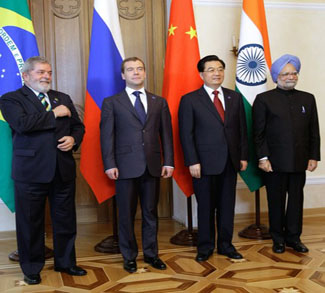Introduction
American decline has once again become a fashionable prophecy in academic and media circles. This time, BRIC countries like China and India have replaced the specter of a rising Japan, the country that was often cited by ‘declinists’ as a challenger to American hegemony during the 1980s. This backgrounder will examine both sides of the debate and provide an objective analysis of the causes and possible effects of American decline.
Decline in context
There is one important point to consider before exploring this debate, and that is the nature of America’s purported decline. Even the most ardent declinists maintain that America will carry on as a central economic and military hub in any future international order; it will just be one of many.
American decline does not imply that America and China will be changing places, but rather that the United States will be stepping down from its’ current position of sole global superpower. Of course, such a development would have a variety of spinoff effects: the US dollar would no longer be treated as a global reserve currency, major powers would be forced into cooperation or conflict over transnational threats, and US military power would not be so prolific around the world. But, even in the most pessimistic projections of American decline, the United States remains a power player in international politics.



